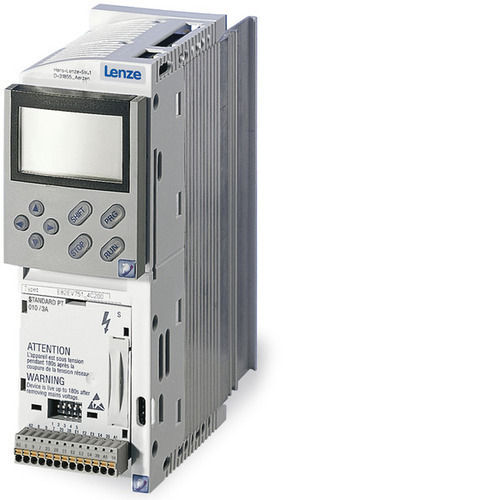Posted on 23rd Feb 2024

Yes, drive settings can have a significant impact on a motor's energy efficiency. The efficiency of a motor being operated by an AC drive is influenced by several factors, many of which can be controlled or adjusted through drive settings. CM Industry Supply Automation Lenze Drive & Keb Drive Supplier share how drive settings can influence motor energy efficiency:
Speed Control: One of the primary advantages of AC drives is their ability to vary motor speed. By adjusting the drive settings to match the required speed to the load demand, you can minimize energy consumption. Running a motor at lower speeds when full speed is not necessary can lead to substantial energy savings, especially in applications with varying load requirements.
Voltage and Frequency Control: AC drives allow for precise control over the voltage and frequency supplied to the motor. By optimizing these parameters based on the motor's operating characteristics and the requirements of the application, you can improve energy efficiency. Overvoltage or overfrequency conditions can result in increased energy consumption and reduced motor efficiency, so adjusting these settings appropriately is crucial.
Acceleration and Deceleration Profiles: Drive settings control how quickly the motor accelerates and decelerates. By optimizing acceleration and deceleration profiles, you can reduce energy losses associated with rapid changes in speed. Soft start and stop features, which gradually ramp up or down motor speed, minimize mechanical stress and energy consumption during startup and shutdown sequences.
Torque Control: Some AC drives offer torque control capabilities, allowing precise regulation of motor torque. By adjusting torque settings based on load requirements, you can optimize motor efficiency. For example, in applications with varying loads, maintaining constant torque rather than constant speed can lead to energy savings.
Efficiency Optimization Modes: Many modern AC drives come with efficiency optimization modes or energy-saving features that automatically adjust drive settings to maximize energy efficiency. These modes may include energy optimization algorithms that continuously monitor motor performance and adjust drive parameters accordingly.
Power Factor Correction: AC drives can also influence the power factor of the motor load. By adjusting drive settings to improve power factor, you can reduce reactive power consumption and improve overall system efficiency.
Load Monitoring and Adaptive Control: Some advanced AC drives incorporate load monitoring and adaptive control features that dynamically adjust drive settings based on real-time load conditions. By continuously optimizing drive parameters to match changing load requirements, these systems maximize energy efficiency throughout the operation.
According to CM Industry Supply Automation Lenze Drive & Keb Drive Supplier In summary, optimizing drive settings to match motor performance with load requirements is essential for maximizing energy efficiency in industrial applications. By fine-tuning parameters such as speed, voltage, frequency, torque, and acceleration profiles, you can minimize energy consumption and enhance the overall efficiency of motor-driven systems.